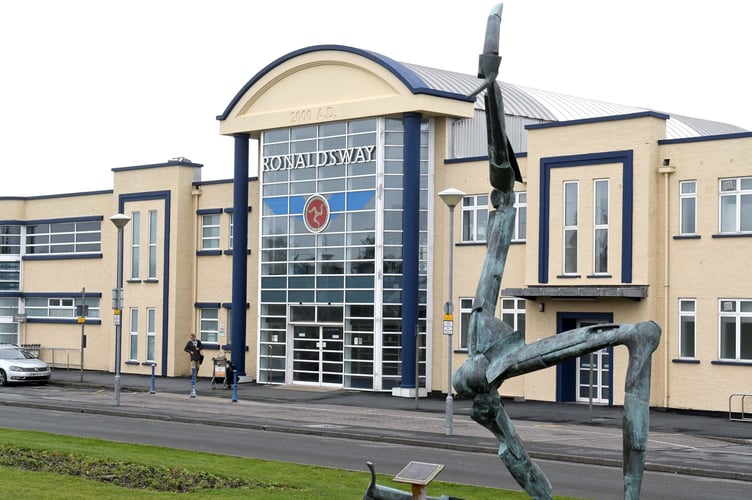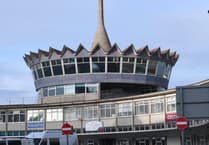Ronaldsway had the fourth worst flight cancellation rate in the British Isles this summer, with one tourism operator claiming the recent travel disruption has damaged the island’s reputation.
Insurance firm Loveit Coverit has compiled figures from the Civil Aviation Authority and ranked airports across the British Isles with the best and worst flight cancellation rates between June 1 and August 31 this year.
Named the ‘fourth worst airport for cancellations’ according to the list, Ronaldsway reported 128 cancellations out of 2,849 scheduled flights this summer - a 4.49% cancellation rate which impacted a portion of its operational schedule.
An airport spokesperson has admitted that some airlines are now ‘proactively adjusting their schedules for summer next year’, even moving flights earlier in an effort to reduce cancellations.
Only Alderney Airport, Humberside Airport and London City scored worse than Ronaldsway.
In comparison, cancellation figures for the island’s airport during the same period in 2022 showed there were 2,535 scheduled flights, with 77 cancelled flights, meaning 3% of flights were cancelled.
This means that Ronaldsway has seen a 1.4% rise in cancelled flights from summer 2022 to summer 2023.
Ged Power, owner of tourism and private hire services, Isle of Man Golf Holidays and Powerwheels, said local businesses are suffering because of the issues at Ronaldsway.
Mr Power said: ‘I think what the airport has to do is measure the reputational damage. What they should be doing straight away is somehow polling travellers who use UK flights as to whether they know about the fragility of travelling to the Isle of Man, and if that’s on their radar as a matter of urgency we need to correct that because there’s nothing worse than having the uncertainty when going on your well-earned holiday.
‘In May this year there was a group coming from Belfast, they were on the tarmac of the runway ready to set off and the pilot said they couldn’t because of the problems with the landing system at Ronaldsway .
‘They ended up not coming at all and it was a big refund job, so the hotel misses out, the golf clubs miss out and the pubs.’
He added: ‘So you put the maximum effort in, you capture the booking to the Isle of Man because it’s the best golf haven and you’re let down at the last minute.
‘It’s not the financial side of it that bothers me, because it’s just a sale and sales come and go, it’s the disappointment of listening to guys like that who wonder how they can get to the Isle of Man from Belfast.
‘They couldn’t and that’s their annual golf holiday ruined, and they’ll never think about coming here again.’
Mr Power said that while he’d noticed ‘moderate’ improvements at the airport recently, he said the situation still needed to be reviewed.
‘Bookings are strong next year, and wouldn’t it be great if we could say sorry to those people who were inconvenienced and somehow invite them back and make it up to them,’ he said.
There were reports of regular flight disruption over the summer with the runway at Ronaldsway forced to close up to five times a day in response to a shortage of trained air traffic controllers.
Under Civil Aviation Administration regulations, air traffic controllers can only be in the tower for up to 90 minutes at a time.
These requirements meant that staff weren’t always able to overlap ‘fatigue breaks’, leading to a large number of flights being delayed.
The situation regarding a shortage of air traffic controllers at the island’s airport continues to rumble on.
However, most recent reports suggest that the shortage has had less of an impact on services in recent months.
Isle of Man Airport previously said it was looking to bring in a long-term strategic approach to solve the problem. It hopes to have 18 fully qualified air traffic controllers in place within the next three years.
An airport spokesperson said: ‘The summer presented considerable challenges throughout the aviation industry, marked by operational factors leading to delays and cancellations.
‘Isle of Man Airport has not been immune to these challenges, with many cancellations being influenced by these industry-wide issues.’
The most up to date figures accessible from this year are from the month of September.
Of the 1,028 scheduled flights, 59 were cancelled in September - equivalent to 5.7%
In comparison, of the 792 scheduled flights in September 2022, 26 were cancelled, - equal to 3.2%.
The island isn’t the only Crown Dependency in the top 10 flight cancellation table.
According to the figures, the airport with the highest percentage of cancelled flights during the summer is Alderney Airport, with 107 cancellations out of 1,215 scheduled flights.
Guernsey was eighth with a 3.31% cancellation rate, experiencing 150 cancellations out of 4,538 scheduled flights.
Gatwick took the 10th spot in the table with a 3% cancellation rate, where 2,342 of the airport’s 78,126 scheduled flights were cancelled.




